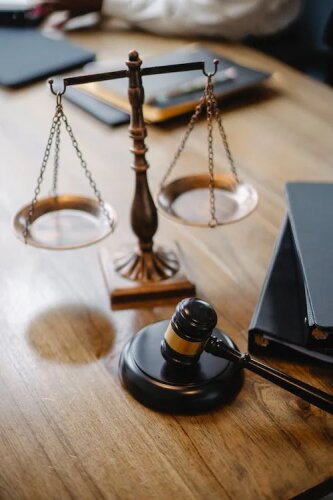Best Communications & Media Law Lawyers in Kaunas
Share your needs with us, get contacted by law firms.
Free. Takes 2 min.
List of the best lawyers in Kaunas, Republic of Lithuania
About Communications & Media Law in Kaunas, Republic of Lithuania
Communications and Media Law in Kaunas, as in the rest of Lithuania, governs how information is created, distributed, and consumed through various media. This field of law addresses regulations for freedom of speech, media ownership, digital communications, content liability, and intellectual property rights. With the rise of digital media and modern communication technologies, the legal landscape is continually evolving to balance public interest, commercial rights, and individual freedoms. Lithuanian law, influenced by both national statutes and European Union directives, ensures that communications and media activities in Kaunas operate within a clear legal framework.
Why You May Need a Lawyer
Individuals, businesses, and media organizations in Kaunas may face a variety of legal challenges in the area of Communications and Media Law. Common situations where legal assistance can be invaluable include:
- Dealing with defamation or libel allegations in publications or broadcasts
- Navigating privacy and data protection concerns in media content or digital communications
- Handling disputes over intellectual property, such as copyright or trademark issues in broadcasted or published works
- Facing regulatory action related to broadcasting licenses or digital communications permissions
- Working with contracts for content production, distribution, or media partnerships
- Managing advertising regulations, including compliance with Lithuania’s advertising standards
- Addressing internet and social media content liability
- Responding to public complaints or disputes involving journalistic ethics
Getting proper legal advice can help protect your rights and interests, mitigate risks, and ensure compliance with local and EU laws.
Local Laws Overview
Communications and Media Law in Kaunas is mostly governed by national legislation enacted by the Seimas (Parliament) of Lithuania and administered through state agencies. Some key statutes and regulations specific to this field include:
- Law on Provision of Information to the Public: Governs rights and responsibilities of media outlets, journalists, and public communication institutions. Protects freedom of expression while stipulating limits, such as hate speech prohibitions and privacy protections.
- Law on the Protection of Minors Against the Detrimental Effect of Public Information: Outlines what content is not suitable for minors and regulates media and broadcasting accordingly.
- Law on Electronic Communications: Regulates telecommunications, including the licensing and operation of electronic communication networks and services in Lithuania.
- Personal Data Protection: Follows the EU General Data Protection Regulation (GDPR) and local legislation regarding the processing and dissemination of personal data, particularly significant for media organizations and online content providers.
- Copyright and Related Rights Law: Addresses the use and protection of original works, specifying rights for creators, publishers, and broadcasters.
- Advertising Law: Stipulates rules for advertising content to ensure truthfulness, prevent unfair competition, and protect children and public interests.
Compliance with these laws is overseen by several governmental bodies, and violations may result in fines, restrictions, or other legal consequences.
Frequently Asked Questions
What types of media are covered by Lithuanian Communications & Media Law?
Lithuanian law covers printed press, radio and television broadcasters, digital and online media, film, advertising, and telecommunications providers.
Is freedom of speech guaranteed in Kaunas?
Yes, freedom of speech is protected by the Lithuanian Constitution and the Law on Provision of Information to the Public, within specified limits such as prohibitions on hate speech, defamation, and threats to national security.
Can I be held liable for comments made on my website or social media page?
Website owners and page administrators may be liable for user-generated content if they fail to remove illegal or defamatory material after being notified.
How are privacy rights enforced in media and communications?
Personal privacy is protected under both national law and GDPR. Publishing personal data or private information without consent may result in sanctions, unless justified by public interest or legal exception.
What restrictions exist on advertising content?
Advertising must not be misleading, offensive, or promote illegal goods. There are strict rules about advertising to minors, and certain products such as tobacco and alcohol have additional restrictions.
Do I need a license to operate a media business in Kaunas?
Depending on the type of media business, such as radio or television broadcasting, specific licenses or permits may be required from government regulators.
How are copyright issues resolved in Lithuania?
Copyright disputes are handled through civil courts, and resolution may involve compensation, injunctions, or removal of infringing content. Mediation is also an option in some cases.
What can I do if I am defamed by a media outlet?
You may request a retraction, seek compensation, or pursue a legal claim through the courts. Administrative complaints can also be filed with relevant authorities.
Are there special rules for online content compared to traditional media?
Online content is subject to most of the same laws as traditional media, but there are additional responsibilities related to data protection, copyright enforcement, and user-generated content.
Who regulates media and communications in Kaunas, Lithuania?
Primary regulators include the Radio and Television Commission of Lithuania, the Communications Regulatory Authority, and the State Data Protection Inspectorate, among others.
Additional Resources
For those seeking more information or assistance, the following resources can be helpful:
- Radio and Television Commission of Lithuania: Supervises broadcasting and audiovisual media services, handling licensing and complaints.
- Communications Regulatory Authority: Regulates electronic communications, telecommunications, and internet services providers.
- State Data Protection Inspectorate: Oversees enforcement of data protection laws and handles privacy-related complaints.
- Lithuanian Journalists’ Union: Offers support and guidance for journalists and media professionals addressing legal or ethical issues.
- Consumer Rights Protection Authority: Ensures media and advertising comply with fair competition and consumer rights laws.
- Local law firms with experience in Communications & Media Law: Many firms in Kaunas provide specialized legal assistance in this field.
Next Steps
If you believe you need legal advice or assistance regarding Communications and Media Law in Kaunas, consider these steps:
- Identify your specific legal issue, such as defamation, licensing, copyright, or data privacy.
- Collect all relevant documents, contracts, or evidence relating to your situation.
- Contact a lawyer or law firm experienced in Communications and Media Law for a consultation. Many offer initial meetings to assess your case.
- If your matter involves a regulatory authority, you may also initiate a complaint directly with the appropriate body.
- Stay informed about your rights and obligations by consulting official websites and resources recommended above.
- Engage in dialogue with involved parties, if appropriate, while following legal advice throughout the process.
Legal matters in communications and media can be complex, especially in a dynamic regulatory environment. Working with a knowledgeable local attorney ensures you protect your interests and comply with all relevant laws in Kaunas, Republic of Lithuania.
Lawzana helps you find the best lawyers and law firms in Kaunas through a curated and pre-screened list of qualified legal professionals. Our platform offers rankings and detailed profiles of attorneys and law firms, allowing you to compare based on practice areas, including Communications & Media Law, experience, and client feedback.
Each profile includes a description of the firm's areas of practice, client reviews, team members and partners, year of establishment, spoken languages, office locations, contact information, social media presence, and any published articles or resources. Most firms on our platform speak English and are experienced in both local and international legal matters.
Get a quote from top-rated law firms in Kaunas, Republic of Lithuania — quickly, securely, and without unnecessary hassle.
Disclaimer:
The information provided on this page is for general informational purposes only and does not constitute legal advice. While we strive to ensure the accuracy and relevance of the content, legal information may change over time, and interpretations of the law can vary. You should always consult with a qualified legal professional for advice specific to your situation.
We disclaim all liability for actions taken or not taken based on the content of this page. If you believe any information is incorrect or outdated, please contact us, and we will review and update it where appropriate.















